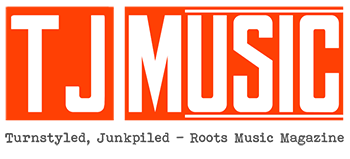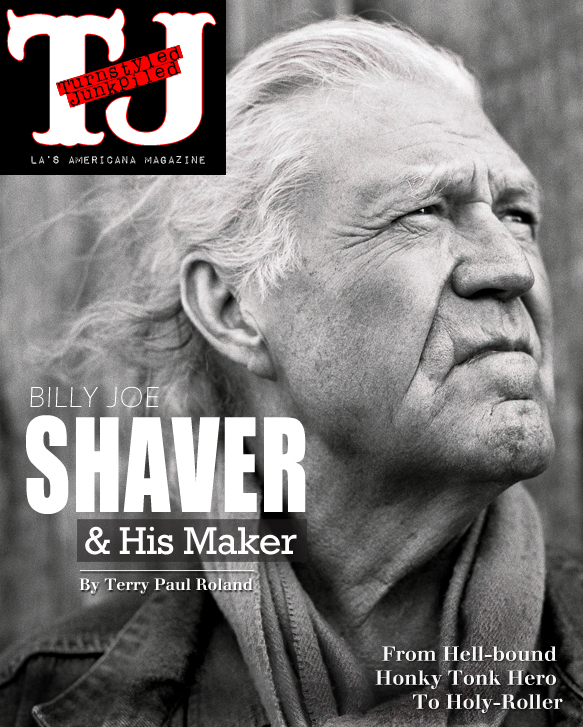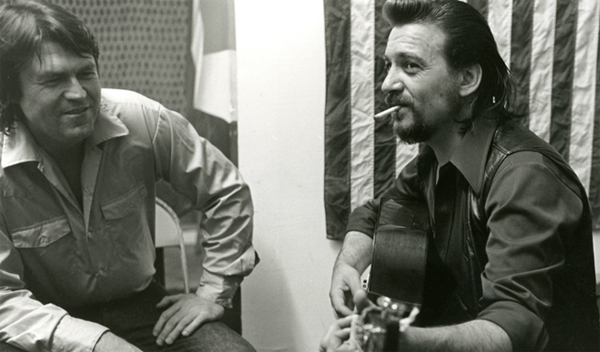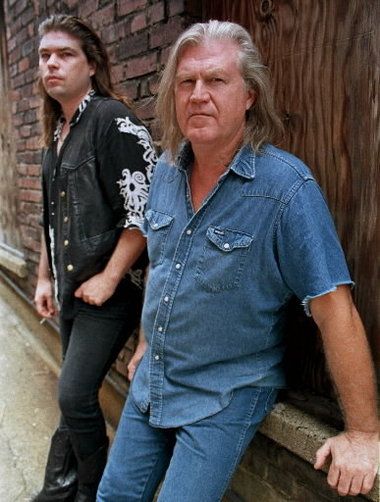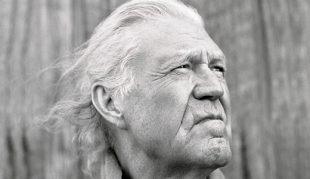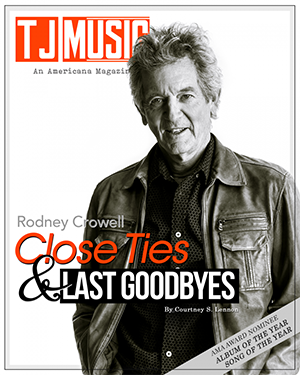By Terry Roland
Sometime in 1946 when legendary singer-songwriter, Billy Joe Shaver, was a child, he crawled out of the window of his grandmother’s house and followed the railroad tracks to downtown Corsicana, Texas. Homer & Jethro were playing a concert at the Wonder Bread Factory. Shaver made his way through the crowd and climbed up a pole so he could see the stage. During the show, a then unknown country singer was introduced. It was Hank Williams. Williams came out on stage and sang one song while the crowd ignored him; with the exception of Shaver who was transfixed. Hank noticed the young boy hanging onto the pole, hypnotically listening to him and sang directly at Shaver.
As he climbed down that pole, Shaver began a life devoted to music, so rich and full of twists and turns it could stagger a great novelist. From a small Texas town he became known as a dusty fallen angel of local honky tonks, a poet, a holy rolling preacher and a hell of a good songwriter. Through his songwriting talent, he would become close friends with country icon, Willie Nelson. He would write one of the key albums of the Red Dirt 70s that broke down the walls of the Nashville establishment.
After years of struggling with a solo career that just wouldn’t take off, he would come into his own with his ultra-talented son, Eddy Shaver, forging a new brand of hard-edged, bluesy country music. The band he and Eddy would form simply called, Shaver, was at least 10 years ahead of their time. Such is the life of one of Texas’ premier troubadours.
Today, Shaver is a man content with his life, his music and his place as a writer in the often fickle and forgetful world of Country Music. But he’s still restless enough to write new songs and even get into a little trouble with the law along the way. After all, he is one of the fundamental figures of the original Outlaw Movement. But most of all, Shaver has his faith in God: he claims to have a personal relationship with Jesus Christ. Yet, he still ambles his way through honky tonks, openly declaring the Gospel as he stumbles toward the light. But Shaver is not the typical holy rollin’ fundamentalist. Not at all.
At his home in Waco, Texas Shaver sounds weather-worn and weary. He also sounds like a man who has accepted all the crazy and extraordinary hands that life has dealt him, even losing a few fingers along the way. And there is a light that comes through in his voice when he spoke about songwriting, old friends like Willie Nelson and especially his son, Eddy.
 IN THE BEGINNING
IN THE BEGINNING
“When I started talking, I started singing. I don’t know why but I loved music,” Shaver explained.
“I’d hear pieces and parts of pop radio and I’d sing what I knew of it and make the rest of it up.”
“I’d go across the railroad every day and there was a settlement of black cotton pickers over there and they had a stand up piano on one of the porches and there was always someone there playing bottle neck guitars and singing. I learned a lot of old gospel songs and a lot of blues songs,” he said when pressed further to explain his beginnings.
Shaver was raised by his widowed grandmother until her death when he was 12. In 1951, he moved to Waco with his reluctant mother, a waitress and hardly had time for her child. But, through her, he became familiar with the honky tonks around Waco. His schooling didn’t last too long. Like he famously wrote in the song “I’ve Been To Georgia on a Fast Train,” he “got a good Christian raising and an 8th grade education” and that was as far as he’d make it through school.
But, not before an important gift was nurtured in him by his home room English teacher.
“One day she said, ‘Write me some poetry,’ so I wrote a poem and it knocked her socks off!,” Shaver laughed.
Shaver was an unlikely poet: he was a 13 year-old tough kid who had been hanging out on the Waco streets with his cigarettes rolled up in his sleeve. But when his teacher gave him a take home assignment to take a single word with the instructions to write a poem about it, he rose to the challenge.
“I sat down there at home. She gave me the word ‘space’ like outer space. I went ahead and [wrote the poem] and it just curled [my teacher’s] toenails. I really barred down. She knew then that I was authentic. She said ‘you’re blessed with quite a talent’,” Shaver recalled.
It was sometime during his Waco days, only five or six years after he saw Hank Williams, when he first met Willie Nelson. “I met Willie in 1953. This DJ introduced me to Willie. He was playing clubs out on the Dallas highway, all up down the highway there in Waco, he was all over the place. I loved to listen to him cause his lyrics were so great. I was inspired by him. I won’t say I was influenced but he lit a fire under me.” he said.
By the time he was 18, Shaver had already been dishonorably discharged from the Navy. He soon met his wife Brenda with whom he had his only child, John Edwin (Eddy) in 1962. Since he was a child, Billy Joe had been writing songs and when he lost three fingers in a saw mill accident, he learned to adjust his guitar playing and the songs kept coming.
Before long it became clear he had to move to Nashville. He arrived at a time when Kris Kristofferson, Mickey Newbury and Harlan Howard were also starting out. It was in Nashville that Shaver would establish his reputation as a songwriter to be reckoned with. But besides his gift for song, he was also known for his drinking, drug use and fighting. Eventually, through working with Bobby Bare, Shaver met Kristofferson, who recorded his song, “Christian Soldier,” on his classic sophomore album, Silver Tongue Devil and I. Kris loved Billy Joe so much he put up his own money to produce Shaver’s first solo album, Old Five and Dimmers Like Me.
HONKY TONK HEROES
Where does it go? The good Lord only knows And seems like it was just the other day I was down at Green Gables and hawking them tables And generally blowing all my hard earned pay Piano rolled blues, danced holes in my shoes There weren’t another other way to be for them lovable losers and no account boozers And honky tonk heroes like me.
– Billy Joe Shaver “Honky Tonk Heroes”
By 1971, there was a growing rumble in Music City. Artists like Waylon Jennings were beginning to defy the conventions of the Country Establishment, eschewing the gaudy rhinestones and greasy pompadours for blue jeans and long hair. At the time, Waylon, who had moderate success during the 60’s, was being groomed for something big: he was on his way to becoming the next Johnny Cash – the ultimate cross-over Country star.
As fate would have it, Jennings was booked for an outdoor festival in Dripping Springs, Texas. Also booked were Willie Nelson and Kris Kristofferson. Billy Joe Shaver was there. And when he played a few songs on guitar in a trailer backstage at the festival he didn’t know who was quietly listening in.
“Waylon heard ‘Willie the Wandering Gypsy and Me,” there. He asked me if I had any more cowboy songs. I told him I had ‘a sack full of ’em.’ He said ‘Well come on up to Nashville and I’ll do a whole album of them,’ Shaver recalled.
Waylon was on his way up fast track to major success. So like many in the music business, he’d make promises he didn’t mean to keep. But, Shaver persevered.
“I took him at his word. I chased him around for about six months. Every time he’d see me comin’ he’d take off,” he laughed.
Finally, Shaver made his way into a studio in Nashville where Waylon was getting ready to record a new album. This would be the one that would shoot him to the stars of country music and many speculated into the mainstream of popular music. Shaver arranged through a DJ, Captain Midnight, to be in the studio. But, Waylon was sealed up in the control room while Shaver waited outside for hours with the groupies, bikers and hangers-on. When Waylon heard Shaver was there he sent Midnight with a hundred dollar bill and told him to take a hike. Shaver gave the bill back to Midnight and told him to tell Jennings to ‘stick it up his ass.’ When Waylon appeared from the control room, he said “What do you want, Hoss?” Shaver looked at him boldly and said, “You told me to bring some songs. If you don’t at least listen to ’em I’m gonna whip your ass in front of God and everybody.”
“Them bikers started towards me and he stopped them,” Shaver said. “He took me into another room. He said ‘You start playing songs.’ The first song you play me, if I don’t like it I’m gonna stop you right in the middle of it and you’re gonna go away and I’m not gonna ever see you again. That’s the end of it.”
The first song he played for Jennings was “Ain’t No God In Mexico.” When he finished “Honky Tonk Heroes,” Jennings slapped himself on the legs, jumped up and said, “I know what I gotta do!” From there he went into the control room, fired the Nashville musicians and brought in his own band to record an album of songs the establishment would complain was ‘too raw.’
The truth is, Waylon Jennings’ groundbreaking, Honky Tonk Heroes brought country music to a new level with poetic, lyric driven songs like “Black Rose,” “I’ve Been To Georgia on a Fast Train,” and “Ride Me Down Easy.” Lyrically, the songs came across with the same kind of poetic grace as Dylan. But the music and studio production carried the same kind of urgency of the early Yellow Sun recordings of Elvis Presley. It stood Country Music on its head. The industry would never be the same, thanks to Waylon and Billy Joe.
FREEDOM’S CHILD
But if anyone walks in the night, he stumbles, because the light is not in him. – John 11:10
Success was not kind to Billy Joe Shaver. A series of solo albums that followed Honky Tonk Heroes didn’t define Shaver’s sound in the studio and were commercial failures. As the road and the night life took it’s toll, it looked like Billy Joe Shaver wasn’t going to make it. His drinking and drug use left him in such dismal physical health, his weight dropped down to 150 lbs. He couldn’t keep food down. Finally he made a vow to take his own life.
“I got to the point where I couldn’t even tell wrong from right. That was when I met Jesus. I came into my room and it was illuminated solid white. He was sitting on the edge of my bed with his head in his hand and he was moving his head from side to side nodding at me as if to say, ‘how long are you going to do this?’ I glance toward him but I couldn’t look at his eyes, they were like coals of fire.”
In his frame of mind Shaver didn’t know what to make of the vision. “I went to a cliff outside of Nashville. A place called Kingston Springs. I went up this treacherous path. There were no stars or light that night,” He said. “At the top of this cliff was a shear hundred foot drop,” he said.
“There was this perfect natural altar that was hewn out from the wind and rain. It was right at the edge of that cliff. I could’ve swore I’d jumped off of that cliff. I meant to ’cause my life was such a mess, but I found myself on my knees and asked God to help me. That’s when I got born again. When I came down that path I was singing the first half of “Ole Chunk of Coal,” it took me almost a year to finish the rest of it.”
It took several months before Shaver could handle solid food. He said that one day he finished the second half of “Old Chunk of Coal.” After that, he was able to eat, his weight returned and soon he was able to perform and record again.
Billy Joe Shaver attributes much of his success to his son. Eddy was an unusually gifted guitarist. By the time he was 12 he was arranging his dad’s songs. By 14 he was in the band and playing with a Hendrix like fury. In 1993, the father and son formed the seminal alt country band, Shaver. Their debut album brought Eddy’s hard driving and remarkable guitar work together with his father’s lyrical songs.
“Everybody in Nashville said you’re ruining your career letting your kid push you around doing all this rock and roll stuff,” he wearily said.
“It was just blues with a beat. They’re doing that now. We were just a little too far ahead. I guess it’s better to be ahead than behind,” Shaver laughed.
But, while the decade of the 90’s saw Billy Joe Shaver’s rise, it ended in multiple tragedies. In 1999, his wife died after a battle with cancer. Then, on New Year’s Eve, 2000, Eddy died of a drug overdose. And on July 4 2001, Shaver had a heart attack on stage. After surgery and recovery, he came back with a new album, Freedom’s Child, dedicated to Eddy. It’s on the album he recorded the moving tribute to his sun, “Star of My Heart.” At one point, before Eddy’s life ended, Billy Joe remembered the two of them attending a little church. They went forward at the altar call for prayer.
“The preacher asked Eddy who the most important person in his life was; he said me. Then the preacher asked me who the most important person in mine was and I said, my son, Eddy. Then the preacher asked us both, can you let each other go, give each other to God. We both said’ yes.’ I just didn’t know God would take him so soon,” Shaver said with acceptance and resignation.
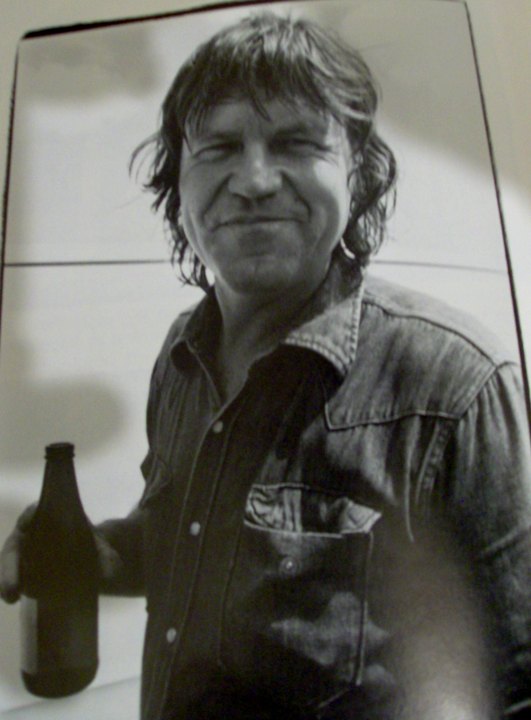 WACKO FROM WACO
WACKO FROM WACO
I’m a wacko from Waco, ain’t no doubt about it, shot a man there in the head but can’t talk much about it. He was trying to shoot me, but he took too long to aim. Anybody in my place, woulda done the same. I don’t start fights I finish fights, that’s the way I’ll always be. I’m a wacko from Waco, you best not mess with me.
– Billy Joe Shaver “Wacko From Waco”
If all of the crisis of the 90’s weren’t enough, in 2007, Shaver was arrested on charges of aggravated assault. It happened at a Papa Joe’s Saloon, a bar in Lorena, Texas just ten miles outside of Waco. A man named Billy Coker was harassing Shaver in the bar. After a period of time, the two went outside. It was observed that Coker had a knife. A witness outside saw the man attack Shaver with his knife. Shaver pulled out a .22 pistol and was rumored to have said “Where do you want it motherfucker?” before he shot Coker.
Shaver verifies: “I shot him right between the’ mother’ and the ‘fucker.’”
The man was shot in the mouth with the small bullet lodging in his neck. The injury was not life threatening. At the trial in 2010, attended by his friends, Willie Nelson and Robert Duvall, Shaver was acquitted of the charges after pleading self defense and went on to record the song “Wacko From Waco” about the incident with Willie after the heat died down.
REVELATIONS
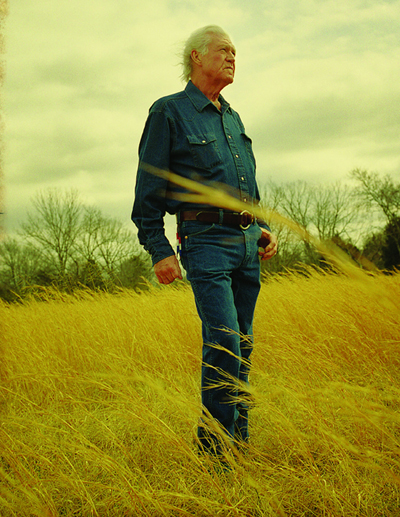 When I looked into the mirror, I couldn’t see myself, the demons that were in me had turned me wrong side out. I knew inside my soul that I was headed straight for hell, but I couldn’t for my life figure how to help myself. Get thee behind me Satan, for I command it in the name of the Lord Jesus Christ of Nazareth
When I looked into the mirror, I couldn’t see myself, the demons that were in me had turned me wrong side out. I knew inside my soul that I was headed straight for hell, but I couldn’t for my life figure how to help myself. Get thee behind me Satan, for I command it in the name of the Lord Jesus Christ of Nazareth
Billy Joe Shaver “Get Thee Behind Me Satan”
To say Billy Joe Shaver is a survivor is an understatement. He is a thriver. He is also a walking national treasure. He continues to write songs and play concerts around the world. He emerged from some of the worst trials a man can face; yet his faith is stronger than ever.
“It’s spiritual,” Shaver said of his church attendance. “I have Indian friends that are in touch with the spirit world. It’s the same thing. They have different names. But, I believe there’s only one God. That’s how I feel about it. I’m a happy man.”
When Billy Joe is performing, there is a point in the show when the band turns their back and he kneels center stage and sings his song to Eddy, “Star in my Heart,” like a holy prayer: “Your soul is bursting at the seams, you are finally free, even more than you could ever dream of.”
The song is about letting go. It’s a true love song, a moment of naked honesty. That is the kind of straight forward integrity that has sustained Billy Joe Shaver’s faith and his music. He has interwoven spirituality into his life so closely; it is naturally reflected through his lyrics and the songs he writes. But, at the same time, he’s not afraid to sing a song about a woman with “an ass about thirteen axe handles wide,” on the amusing “Leavin’ Amarillo,” staying true to his honky tonk origins as much as his religious roots.
Shaver has no fear. He faces life and accepts it as it is. And often times, writes a song about it. And as he sings, “the Earth rolls on,” so thankfully, does Billy Joe.
billyjoeshaver.com | Live at Billy Bob’s
Billy Joe Shaver “Live Forever”
Terry Roland
Latest posts by Terry Roland (see all)
- John Prine: An Appreciation - April 21, 2020
- Kinky Friedman: Deep in the Heart of Texas - June 18, 2018
- Chris Hillman’s Still Flying High on New Album, Bidin’ My Time - December 8, 2017
